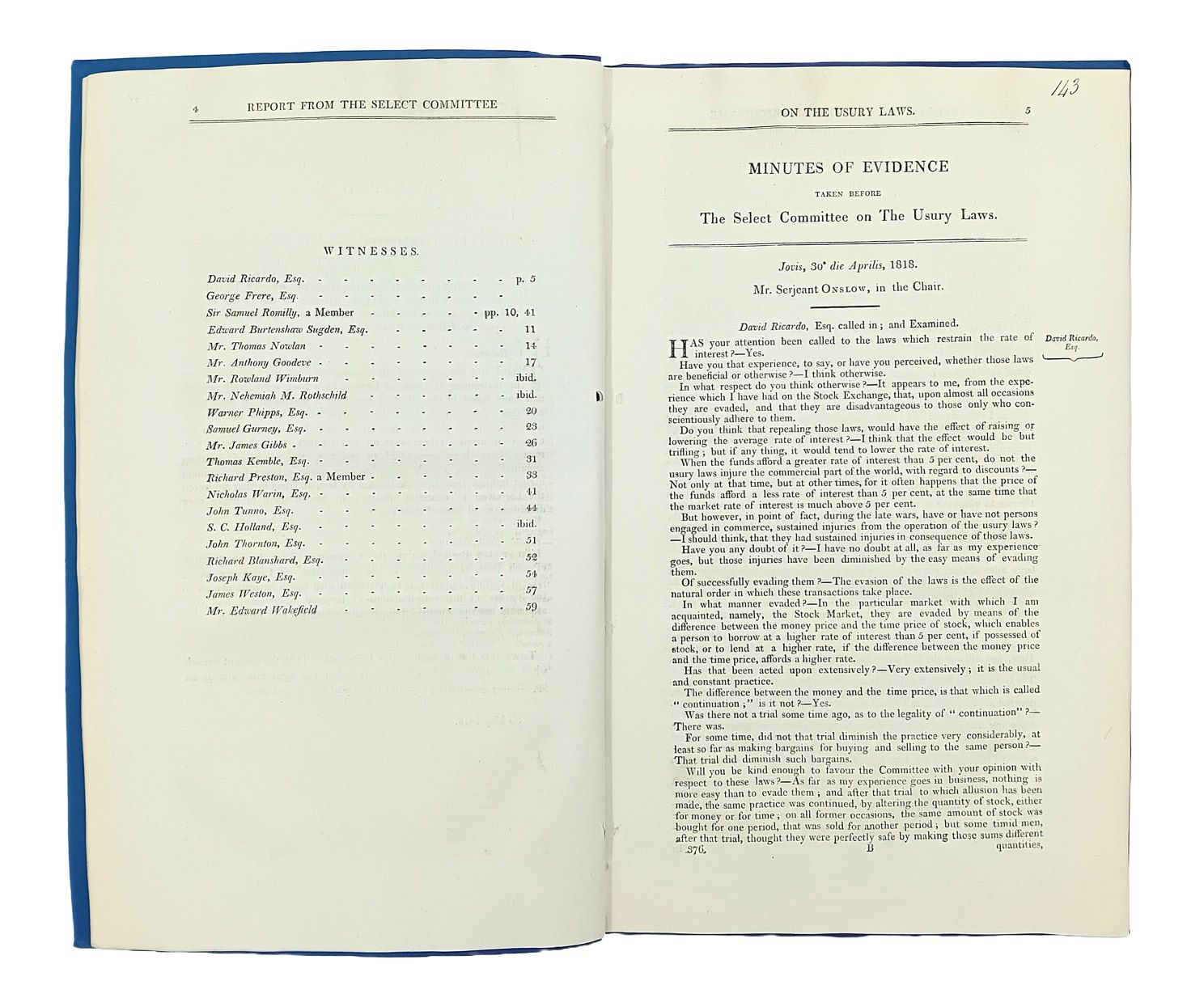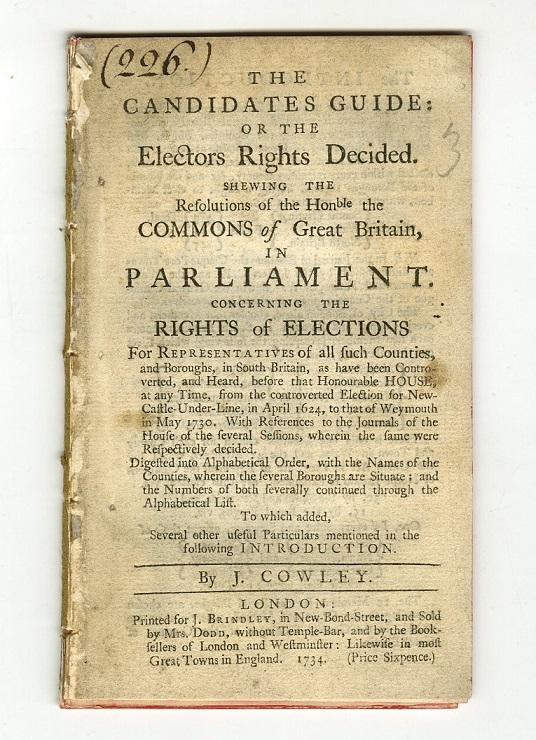
[RICARDO, David.]
Report from the select committee on the usury laws.
London, Ordered by the House of Commons to be printed, 1818.
Folio, pp. 59, [1] blank; a very good, clean copy, contemporary manuscript numbering to the upper right hand corners of the rectos where the work had previously been bound into a volume of reports, now rebound in modern card wrappers, printed paper lettering-piece to the upper wrapper.
First edition of the report from the select committee ‘appointed to consider the effects of the laws which regulate or restrain the interest of money, and to report their opinion thereupon to the House…’ (p. 3). The question of the Usury Laws had first been raised in the house of commons by Brougham in a speech of 1 February 1816. The law then in force was a 1712 Act of Queen Anne (12 Anne Stat. 2. c. 16) which capped the rate of interest at five per cent. Following a number of unsuccessful attempts at forcing discussion and repeal, a Committee was appointed to review the laws.
‘The Committee took evidence from twenty-one witnesses representing the commercial and landed interests; the first to be heard was Ricardo. Almost every one of the witnesses declared that the Laws were either injurious, particularly to the landed interest, or inoperative’ (Sraffa, p. 335). Regarding the stock exchange, for instance, Ricardo states: ‘It appears to me, from the experience which I have had on the Stock Exchange, that, upon almost all occasions they are evaded, and that they are disadvantageous to those only who conscientiously adhere to them’ (p. 5). The enquiries of the Committee resulted in three resolutions: 1. The laws were extensively evaded and that they succeeded only in adding to the expense incurred by borrowers on real security; 2. That the laws are antiquated in their construction which casts doubt on the legality of common contemporary transactions resulting in needless embarrassment and legal proceedings; 3. That the present period, when the market rate of interest is below the legal rate, provides a rare opportunity for a painless repeal of the laws.
Despite repeated attempts to pass Bills through the House to abolish the Usury Laws, two of which Ricardo supported with speeches, the repeal process was a slow and piecemeal one which began in 1833 but was not completed until the Usury Laws Repeals Act of 1854 (17 & 18 Vict. c. 90).
See Parliamentary Papers 1801-1900 [7946] and Sraffa ed., The works and correspondence of David Ricardo, Vol. V, pp. 333-347.

